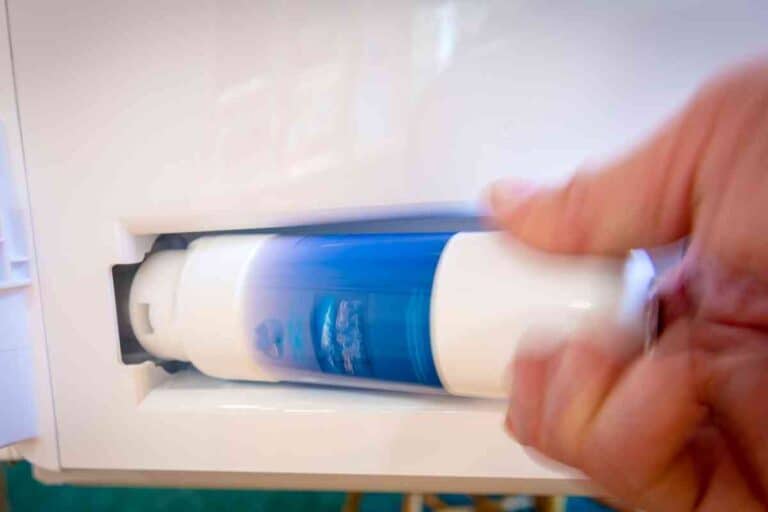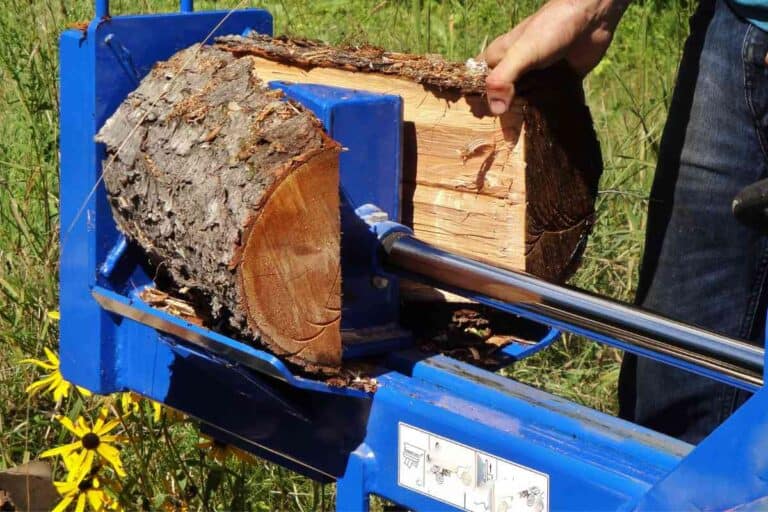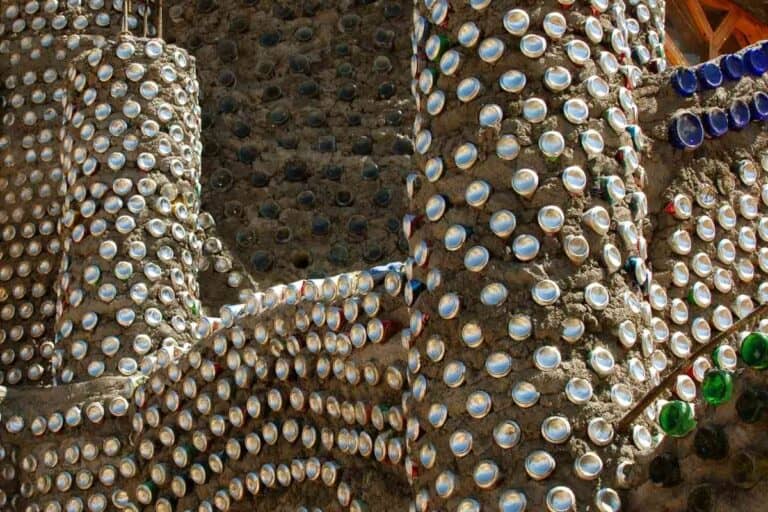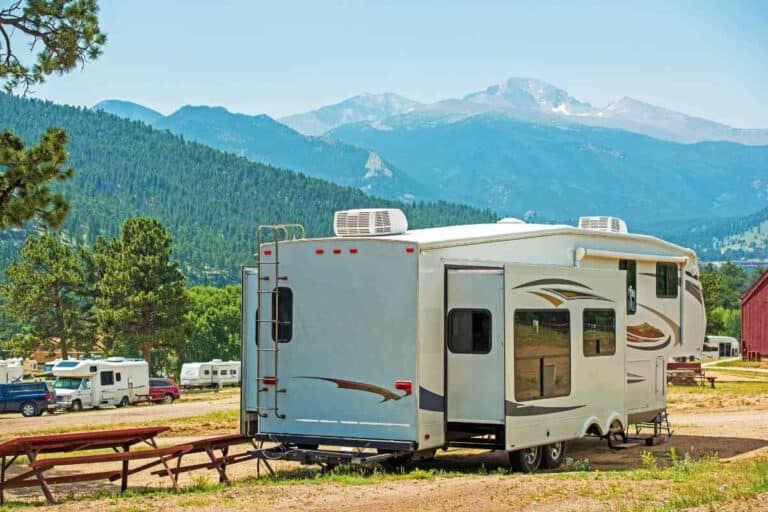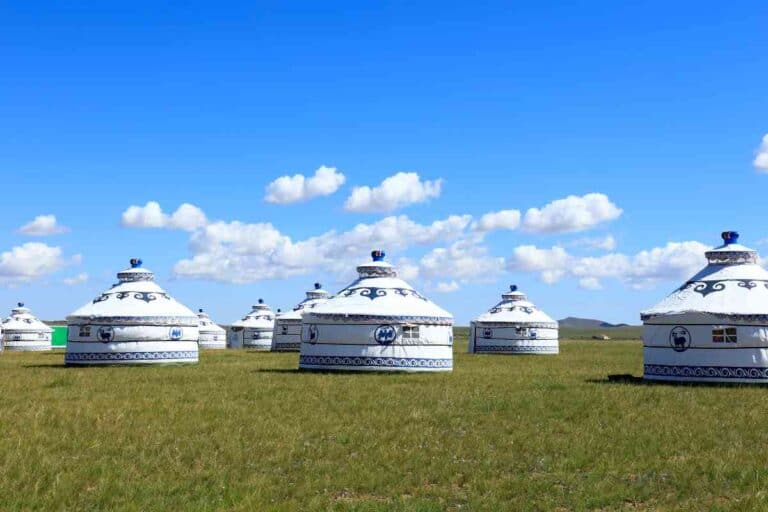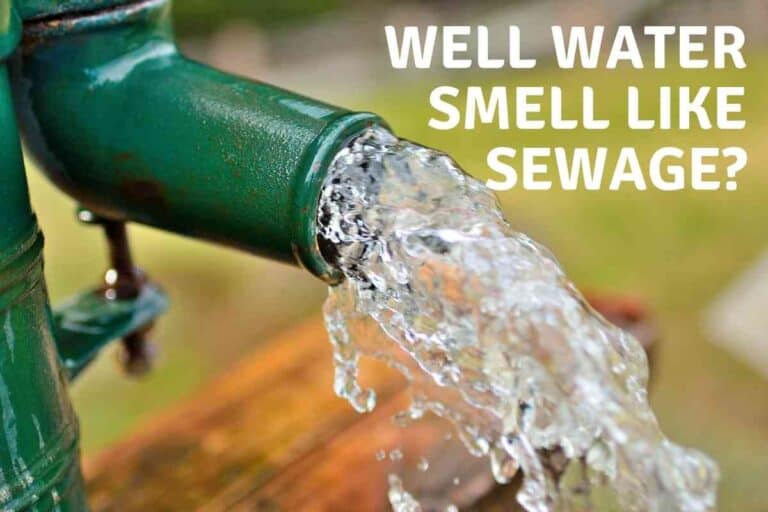Here Are 4 Ways To Keep Food Cool While Camping
Anyone who likes to spend time camping or living off the grid is going to want to know different ways to preserve their food while outside.
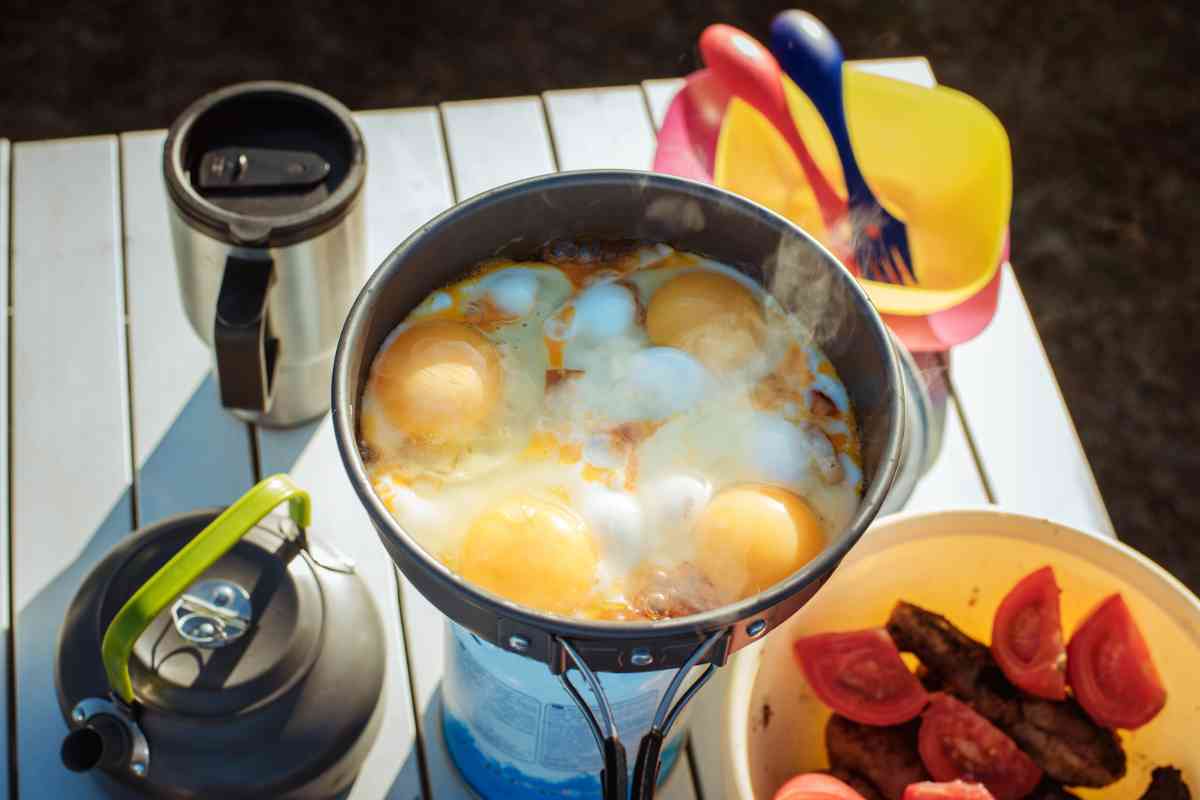
How do you keep food cold while camping?
Here are 4 ways that you can keep food cool while camping:
- freeze your foods before you pack them
- use store-bought, or homemade ice packs and place them around the foods
- freeze water bottles (that you can later drink!)
- buy the right cooler
Having spent my fair share of time in the great outdoors, I know there are certain things that can quickly and absolutely ruin an otherwise killer camping trip.
Knowing how to keep food cool is an essential part of a successful camping trip, and I’ve compiled some of the best ways to do that while not needing too much extra equipment and not breaking the bank.
Though not all of these ideas will work for everyone, surely there’s something here that will work for you on your next great adventure outdoors.
4 Ways to Keep Food Cool While Camping
Weather, animals and other environmental factors rank right up there as being some of the biggest buzz-kills when you set out on a camping trip.
There are all types of unpredictable problems that can spring up during any time you spend outdoors…what if someone gets sick? What if you forgot to bring something to start the fire with? with? No matter how skilled of a camper you are, it’s not always going to be easy to avoid them.
That said, there are also some elements that don’t have to be full of surprises. Even though we can’t control Mother Nature, we can control what we take when we go visit her.
There are plenty of parts of our everyday lives that have no business venturing into the wilderness with us. I still get a chuckle out of people who decide to bring air conditioning units when they go camping or can’t last for more than four hours when they realize they have no cell service.
But let’s be honest…some of the “creature comforts” of home are more than just added comfort. Some are necessary in order for us to make it back in one piece.
Will most of us perish if we don’t have cold food? Well, it depends.
There are certain foods that we consume on a daily basis that should always be refrigerated.
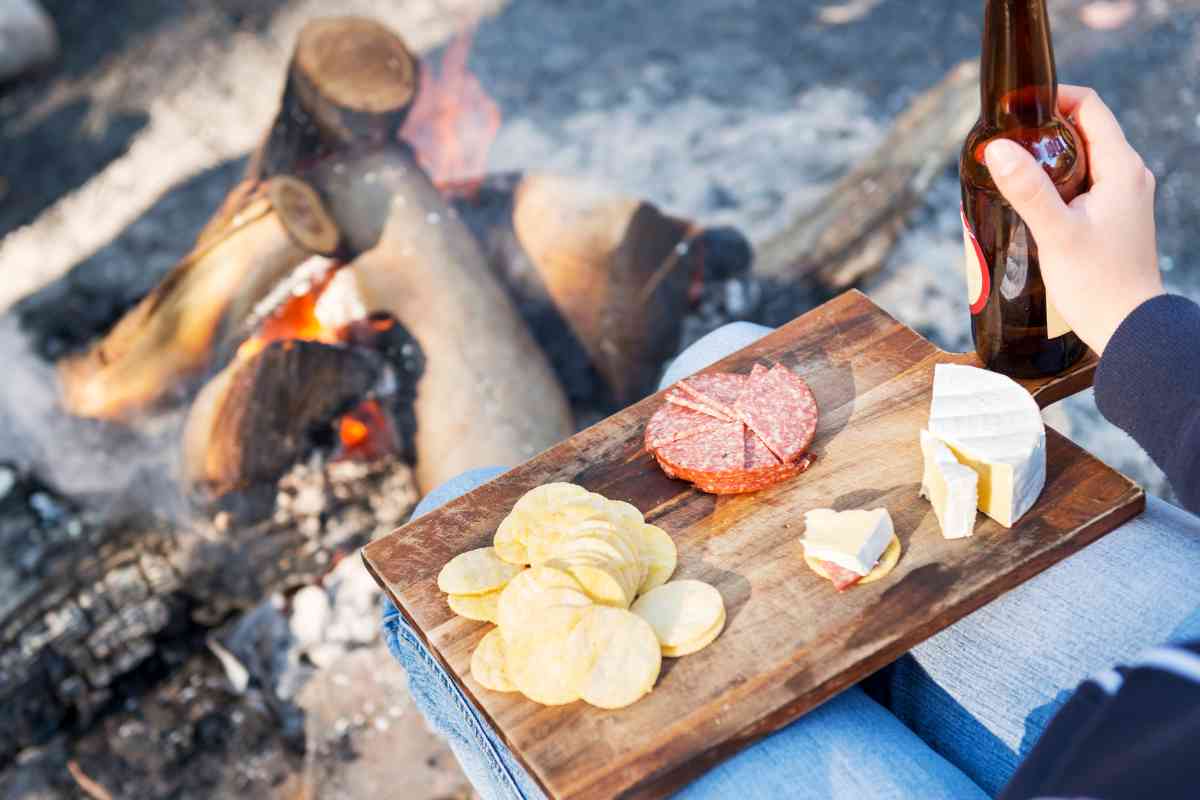
Dairy products (think milk, mayonnaise, cheese, and yogurts), eggs, fish, and meat (especially uncooked) are all foods that not only can spoil quickly but can actually make you quite sick if you eat them after they’ve gone bad.
Most food experts suggest that foods that spoil quickly need to be kept in temperatures below 40 degrees Fahrenheit.
Temperatures above this – even small increases – can not just rob food of its flavor but actually cause it to be a health concern if you were to consume it.
Knowing this, it’s a more than a reasonable idea to want to keep your foods cool while camping, even if you’re trying your best to “rough it” as much as possible.
But what’s the best way to achieve this? Let’s look at a handful of different options you have for keeping your food cool the next time you are planning a camping trip.
1. Always Freeze Your Foods Before You Pack Them
Here’s a good trick that will cost you nothing other than a little extra time.
Any foods that you are planning to take with you that will require refrigeration can be frozen long before they even get packed into the cooler.
Because freezing a food item reduces its internal temperature by such a drastic amount, fully freezing your food items will allow them to not thaw out for anywhere from 18 to 24 hours.
Of course, some of the rates at which a food thaw is going to plan on the food. A thin chicken breast is going to thaw much more quickly than an entire turkey.
A large container of homemade chili won’t take as long to thaw as would a full ham that you’re planning to roast.
Take into consideration the food, the container it’s in, and its density when you want to be able to use something that’s frozen. For those who are camping for longer periods of time, pre-freezing your foods works great, because you won’t need them all at the same time.
You can use the foods as they thaw, saving the ones with more surface and density for later days and nights.
Another thing to remember is what type of containers you use can also make a difference in how long your food will stay frozen. Using freezer bags is probably your best option, since they will keep things air-tight and are easy to pack.
2. Use Ice Packs
Let’s say you don’t have time to freeze all your food, or you don’t have room in your home freezer to prepare everything ahead of time.
Or – maybe you are going to be camping for longer than normal and just want another layer of protection after freezing everything ahead of time.
Ice packs are a great way to keep foods cool without much energy (or money!) on your part. And, they are easy to store and can be thawed and refrozen multiple times.
Ice packs can also serve other purposes, like such as a form of first aid. An ice pack is great for inflammation and can also serve as a source of swelling or pain relief if anything were to happen while on your camping trip.
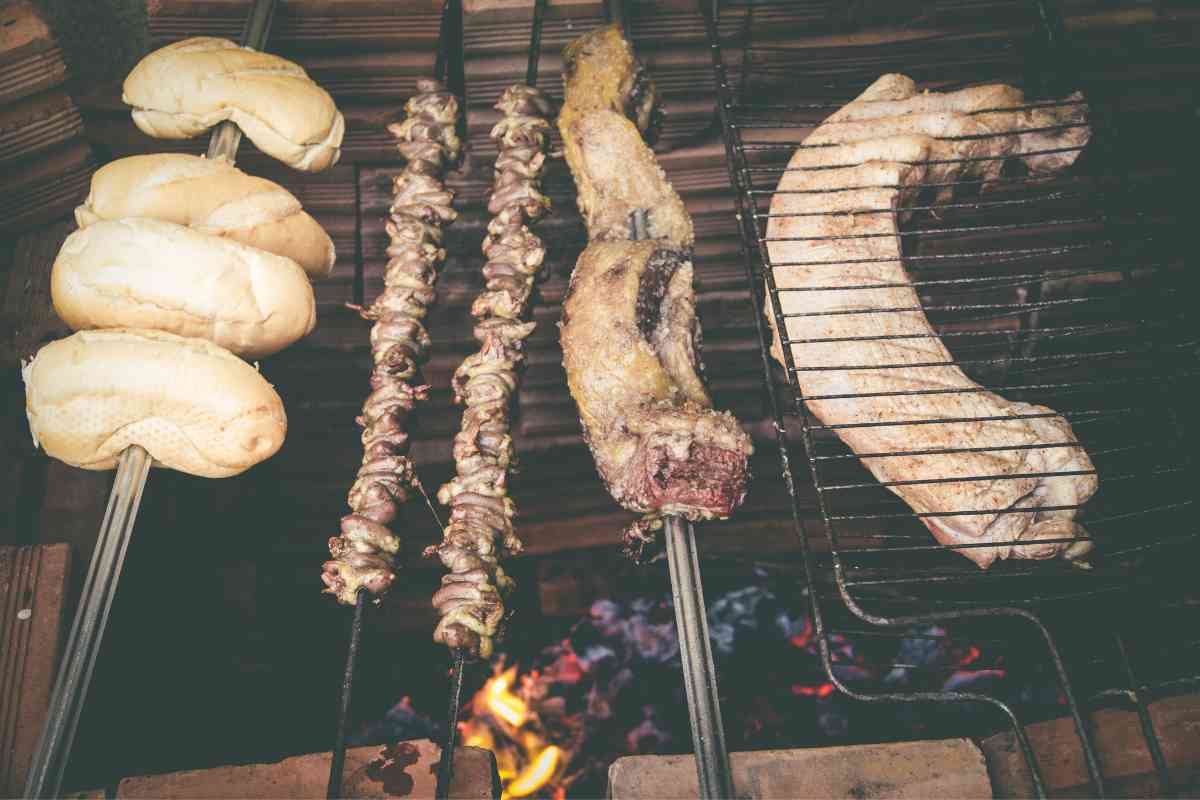
You can buy ice packs at most retailers, grocery stores, or online shops. They are relatively inexpensive and can be reused multiple times. (Just make sure to inspect them before using them since any leaks would not be ideal for your frozen foods.)
It’s also easy to make your own ice packs. Simply buy a batch of freezer bags and fill them with ice. Sprinkle just a pinch of salt inside (this will help the melting point stay high) and then make sure it’s fully sealed.
Another option for an ice-pack container would be to use milk jugs, if you have that type of space, and need to keep a large amount of food frozen.
3. Freeze Water Bottles
This is a fantastic option because it serves multiple purposes and can be a really inexpensive way of ensuring that your food stays cool long into your camping adventure.
Whether you buy new ones, or recycle ones you already have, filling a bunch of 12 oz water bottles, then freezing them, is a wonderful way to take care of a bunch of different needs at once.
Frozen water bottles will do a great job of keeping other things in your food cooler cold, while also staying frozen until you are ready to drink them.
It will take about 3 hours for a 12 oz bottle of water to fully freeze. And to thaw one out? About the same amount of time…less if you are camping during summer, but much more if you are camping in colder climates.
In order to get the full benefit of frozen water bottles, pack them in between layers of food. This will help them stay frozen for longer, especially if the food itself is also frozen, or at least has been chilled.
For foods that are being put in the cooler at room temperature, the frozen water bottles will still keep them cold, but they won’t be able to freeze the foods. And – the water bottles themselves will dethaw much quicker when they are exposed to items that are significantly warmer than they are.
The only real downside to using frozen water bottles to keep your foods cool while camping is that they do take up more space than ice packs do, and they can be heavy and cumbersome to carry.
But – most of us are going to plan to take some source of water with us anyway when we go camping. And though our water doesn’t necessarily have to be cold to drink, it’s nice to have a refreshingly cool bottle now and then.
So…if you have the space, consider putting some frozen water bottles into your cooler to keep everything nice and cold on your next camping trip.
4. Get the Right Cooler
No matter how much food you freeze, ice packs you buy, or water bottles you pack, the size and quality of your cooler is going to play a role in how challenging it is for you to keep your food cool while camping.
Sure, if you are just going out for a night or two, you can probably get by with pretty basic styrofoam coolers, especially if you do things like freeze your food ahead of time and bring ice packs and water bottles along to maintain the temperature once things begin to thaw.
But for anyone who is going on a longer camping trip, you may want to make sure your cooler has adequate space and cooling abilities to keep everything colder for longer. Something with thicker walls will provide better insulation.
There are so many different brands, models and styles of high-end coolers on the market today. Some are perfect for a day at the beach or a soccer tournament…others are made for holding emergency gear or being taken on military missions.
In the end, you’ll have to decide what size, style, price, and use you want from your cooler. But making sure you think about the key component – keeping your food cool – will help you decide which cooler is ultimately the right one for you.
Key Takeaways
- Regardless of how much you want to “live off the land” while camping, you’ll probably need to keep at least some of your food cool while doing it.
- Though many foods don’t need a fridge, there are some that we use quite often that do, such as dairy products, meats (especially uncooked), and eggs.
- The best 4 ways to keep food cool while camping is to freeze your foods before you pack them, use store bought or homemade ice packs, freeze your water bottles, and buy the right cooler to store everything appropriately.

